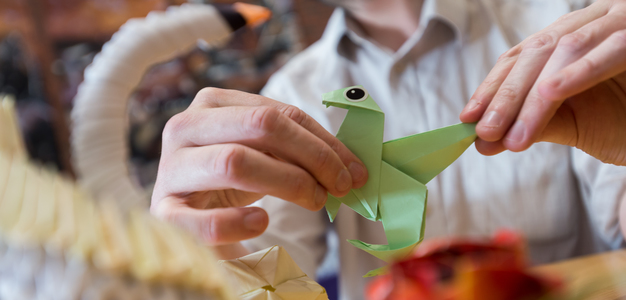How mindfulness can help your relationships

Most of us would agree that relationships are the most important aspects of our lives - whether that's family, friends, or work colleagues.
The theme of this year's Mental Health Awareness Week is relationships and it's easy to see why: good, and bad, relationships shape every part of our lives.
Relationships can be the most challenging experiences, but I'm going to be looking at how learning to relate more mindfully in these relationships can bring such great benefit and reward.
As human beings we need connection, and are designed to be with others. In our relationships, we can become quite fixed on how we are around each other and how we see certain situations. Family, friends and work colleagues become used to the way that we are, but may not necessarily like it. Often we won't challenge each other's behaviour, though, as most of the time it can be easier to leave things be.
When we practise mindfulness, however, it gives us more clarity to notice our patterns of behaving and thinking more clearly. Mindfulness can help us to be fully open to the relationship without the old habits and assumptions that pop up about ourselves or the other person.
When we listen to others, we should ask ourselves, "Am I fully present with this person?" and "Am I listening to things from their perspective and not mine?"
Very often, we don't realise that our mind can be somewhere else and not fully focused on the other person. It can be extremely challenging but, with practice, this will change.
When communicating in a challenging situation, take a few moments to focus on your breathing and pause for a moment. Check in on yourself by asking:
- What are my thoughts?
- How am I feeling/ what emotions am I experiencing?
- What sensations are going on in my body right now?
· Open your awareness to yourself - be aware of your breathing while noticing your feet on the ground - while you still focus on the other person.
Take time to think about what you would like to say about how you are thinking and feeling. Take time to decide on how you respond, rather than reacting in a way that may have been unhelpful in the past.
Rather than homing in on what the other person has done, talk about the experience of the situation from your perspective. Remember you choose what you do and don't say.
Mindfulness is often recommended by the LionHeart counselling team as a strategy for coping with difficult situations, including stress and anxiety.
If you'd like to find out more about mindfulness, you might find the following books and articles useful:
Mindfulness: Finding peace in a frantic world
Wherever you go, there you are
Full Catastrophe Living: Cope with stress, pain and illness using mindfulness
Everyday Blessings: Mindfulness for parents
Free meditations on the Mindfulness in a frantic world website
Mindfulness tips for families, Parent Toolkit website
Be Mindful online mindfulness course
Headspace website and app
Bernadette Antoniou is a counsellor for LionHeart based at our Midlands offices. She has been with the charity for nearly four years.

